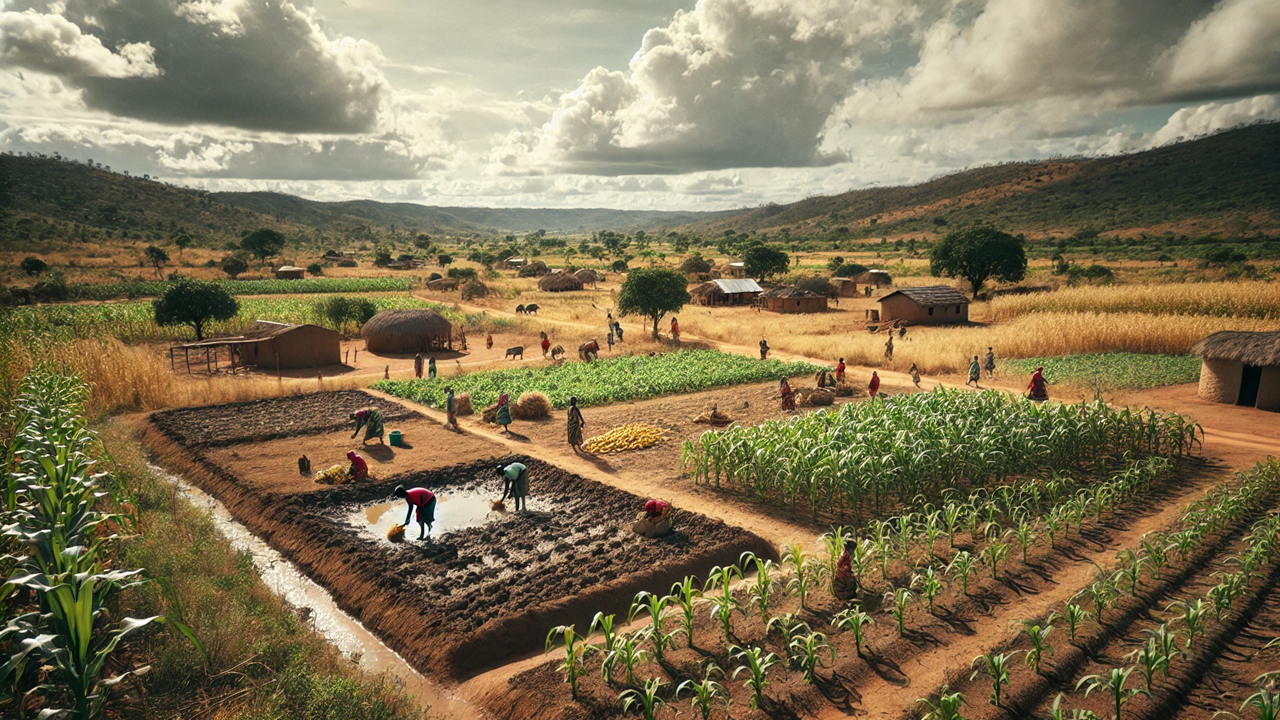Mozambique’s Agriculture at a Crossroads: Policy Shifts Needed for Sustainable Growth
A recent review of Mozambique’s agricultural policies reveals that while monetary support for agriculture between 2019 and 2022 reached US$567 million, the heavy reliance on market price support has led to inefficiencies and inequities in the sector. The Mozambique Agriculture Support Policy Review, published by the World Bank in July 2024, emphasizes the need for a strategic shift toward public investments in infrastructure, education, and technology to overcome structural challenges. The report highlights smallholder farmers' struggles with market access, low productivity, and climate risks, recommending policy realignment to foster sustainable growth and long-term resilience.

Agriculture is the backbone of Mozambique’s economy, providing livelihoods for two-thirds of its population. Yet, despite its vital role, Mozambique’s agricultural sector has faced numerous challenges in recent years. The World Bank’s "Mozambique Agriculture Support Policy Review" (July 2024) sheds light on the government’s agricultural support between 2019 and 2022 and highlights the pressing need for strategic policy changes to address deep-rooted structural issues.
The Costs and Benefits of Agricultural Support
Between 2019 and 2022, the Mozambican government provided an estimated US$567 million in support to the agricultural sector. While this level of support equates to about 3.5% of the country’s GDP, most of the financial burden fell on consumers. The report found that 84% of the agricultural sector’s support was funded by consumers, who faced higher prices for domestic products compared to international market prices.
Producer support in Mozambique has largely been driven by market price mechanisms, with products like rice and cassava receiving the highest levels of aid. However, this price support has disproportionately benefited large-scale producers, while smallholder farmers have struggled to access the benefits. With limited access to inputs, credit, and markets, smallholders—who make up the majority of Mozambique’s farmers—have found it difficult to compete and improve their productivity.
Smallholders and the Struggle for Sustainability
The report reveals that despite the financial transfers to the agricultural sector, structural challenges persist, particularly for smallholder farmers. One of the most significant hurdles is the fragmentation of supply. Small farmers face multiple barriers, including limited access to critical agricultural inputs such as seeds and fertilizers. Additionally, most smallholders rely on rain-fed agriculture, making them highly vulnerable to the climate risks that plague the region, such as droughts, floods, and cyclones.
Mozambique’s agricultural productivity has remained stagnant in recent years. The country’s yields for key crops like maize and cassava lag behind regional averages. This is largely due to the lack of modern farming techniques and inadequate investment in agricultural research and extension services. Without the necessary infrastructure—both physical and financial—smallholders are unable to increase their yields or compete in larger markets. This productivity gap hinders broader economic growth and perpetuates poverty in rural areas.
Recommendations for Policy Realignment
The Mozambique Agriculture Support Policy Review strongly recommends a strategic shift in how agricultural support is structured. The current reliance on market price support has been labeled inefficient and inequitable. Instead, the report advocates for a transition toward public investment in public goods, such as infrastructure, agricultural research, education, and technology. By focusing on these areas, the government can create the necessary conditions for sustainable, long-term growth in the agricultural sector.
Moreover, the report highlights the importance of supporting smallholders through improved access to credit, promoting cooperatives, and enhancing market access. Small-scale farmers need the tools and resources to become competitive in local and international markets. Initiatives like agricultural insurance programs could also provide essential risk management solutions, protecting farmers from the adverse effects of climate change and reducing their vulnerability.
Another key recommendation is shifting from implicit taxation on consumers—who currently bear the brunt of agricultural support—to direct support for the most vulnerable populations. The report urges the government to explore social protection programs, such as food aid and safety nets, to ensure that food security is not compromised by rising domestic prices.
The Way Forward
As Mozambique looks to the future, its agricultural policies must evolve to address the sector's inefficiencies and inequities. The World Bank’s report underscores that while financial support has provided some relief, it has not led to the structural changes necessary for sustainable growth. Moving forward, Mozambique’s government needs to prioritize long-term investments in infrastructure, research, and capacity building to unlock the full potential of its agricultural sector.
The road to agricultural reform may be challenging, but with the right policy shifts, Mozambique has the opportunity to foster resilience, boost productivity, and ensure that its smallholder farmers are not left behind in the process. Sustainable agricultural development is not just about increasing production; it is about building an inclusive system that supports all farmers and protects them from the growing threats of climate change.
- FIRST PUBLISHED IN:
- Devdiscourse










